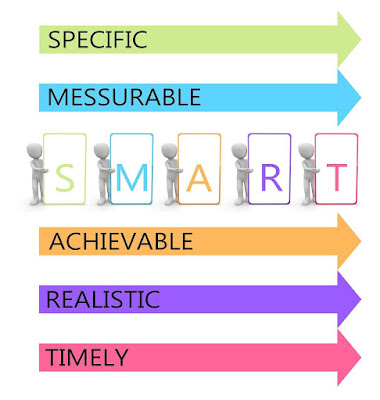Definition of stress
Stress is the body’s natural response to perceived threats or challenges. It is a complex reaction involving physical, emotional, and mental components. When faced with a stressful situation, the body releases hormones like adrenaline and cortisol, preparing it for a “fight-or-flight” response. This can lead to various physical and psychological changes, such as increased heart rate, heightened alertness, and muscle tension .Writing in a journal helps organize thoughts and feelings, providing a clearer understanding of one’s mental state.
Common Sources of Stress
Work: High job demands, tight deadlines, long hours, and job insecurity are significant sources of work-related stress.
Relationships: Conflicts with family, friends, or partners, as well as the loss of a loved one, can be highly stressful.
Financial Issues: Struggles with debt, unexpected expenses, or insufficient income can cause ongoing stress.
Health Problems: Chronic illness, injury, or the health issues of loved ones can contribute to significant stress.
Life Changes: Major life events such as moving, divorce, or starting a new job can be both exciting and stressful.
Consequences of Unmanaged Stress-management-strategies-for-calmer-life
Health Problems: Chronic stress can lead to serious health issues like hypertension, heart disease, diabetes, and mental health disorders such as depression and anxiety.
Decreased Productivity: stress can impair concentration, decision-making, and efficiency, leading to reduced productivity and performance.
Emotional Imbalance: Unmanaged stress can result in mood swings, irritability, and a general sense of being overwhelmed, which can affect personal and professional relationships. .
The Benefits of Journaling
Mental Clarity
Writing in a journal helps organize thoughts and feelings, providing a clearer understanding of one’s mental state. This process can reduce mental clutter and promote a sense of calm and focus.
Emotional Release
Journaling offers a safe space to express and release pent-up emotions. By putting feelings into words, individuals can process and understand their emotions better, leading to emotional relief and stability.
Self-Reflection
A journal serves as a tool for self-reflection, allowing individuals to gain insights into their stress triggers and responses. By examining past entries, one can identify patterns and recognize what situations or behaviors exacerbate stress.
Tracking Progress
Regular writing helps monitor stress levels and identify patterns over time. This practice enables individuals to track their progress in managing stress and to implement effective coping strategies. By reflecting on journal entries, one can celebrate improvements and make adjustments to better handle future stressors.
Getting Started with journaling
When starting a writing practice, selecting the right journal is key. You can choose between a physical journal, which offers a tactile experience and a personal touch with its customizable features like stickers and drawings, and a digital journal, which provides convenience, easy access, and the ability to include multimedia elements. Physical journals are ideal for those who enjoy the act of handwriting and prefer a tangible connection to their thoughts. On the other hand, digital journals are perfect for those who appreciate the ability to quickly search text and back up their entries automatically.
Setting up a writing routine involves finding a time and place that best suits your needs. Some people prefer to journal in the morning to set positive intentions for the day, while others find it beneficial to reflect in the evening. Choosing a quiet and comfortable space is also crucial. Whether you select a cozy corner in your home, a favorite café, or an outdoor setting, ensure the environment is conducive to focus and free from distractions. Adding elements like soft music or a favorite beverage can further enhance your journaling experience.
Creating a comfortable environment for journaling means making sure your space is inviting and stress-free. Opt for good lighting and a comfortable chair to make the process enjoyable. If you are using a digital journal, minimize distractions by turning off notifications. The aim is to make your writing time a relaxing and fulfilling experience, free from interruptions.
Effective Journaling Techniques for Stress Management

To effectively manage stress through writing, several techniques can be beneficial. Free writing, for example, involves setting a timer for 5-10 minutes and writing continuously without self-editing. This method helps clear mental clutter and uncovers deeper thoughts and feelings. Gratitude journaling, where you note three to five things you’re thankful for each day, shifts your focus from stressors to positive aspects of life, promoting a more optimistic outlook.
Prompt-based writing involves using specific questions or prompts to guide your writing, helping you explore particular areas of stress or personal growth. Meanwhile, mindfulness journaling combines journaling with mindfulness practices, such as mindful breathing or meditation, to reflect on thoughts and feelings with a non-judgmental attitude.
Practical Tips for Maintaining a Journaling Habit

Maintaining a writing habit requires consistency and adaptability. Establish a regular schedule that fits into your lifestyle, whether it’s daily or a few times a week. Consistency helps integrate writing into your routine and makes it a natural part of your stress management strategy. If you encounter writer’s block, don’t be discouraged. Use prompts or simply write about your current mood or recent experiences to get started. Remember, the goal is to express your thoughts and emotions, not to create a perfect record. Lastly, be flexible with your journaling practices. If your schedule changes or certain techniques aren’t working, adapt your approach.
Integrating Journaling with Other Stress Management Techniques
Combining journaling with other stress management techniques can enhance its effectiveness and provide a more comprehensive approach to managing stress. One powerful combination is journaling and meditation. Pairing these practices allows you to first center yourself through meditation, creating a calm and focused state of mind. After meditating, writing can help you explore and articulate insights that emerged during your meditation session. This can lead to deeper self-understanding and more profound emotional clarity. To integrate these practices, consider setting aside time each day for a short meditation session followed by journaling about your experiences and any insights gained.
Physical activity is another excellent complement to writing. Exercise can help reduce stress levels and improve overall mood, which can make writing more effective. Engaging in physical activity before journaling can help clear your mind and increase focus. Whether it’s a brisk walk, a yoga session, or a workout, incorporating exercise into your routine can enhance your writing experience by fostering a more relaxed and open mindset. After exercising, use your journal to reflect on how the physical activity impacted your stress levels and emotional state.
Sometimes, journaling alone may not be enough to address more complex or persistent stress issues. In such cases, seeking professional support from a therapist or counselor can be invaluable. A mental health professional can provide guidance, support, and additional strategies tailored to your specific needs. They can help you delve deeper into stress-related issues and offer expert advice on integrating writing with other therapeutic techniques for a more holistic approach to stress management.
In summary, writing can be an invaluable tool for managing stress, offering mental clarity, emotional release, self-reflection, and tracking progress. By integrating writing with other stress management techniques, such as meditation, physical exercise, and professional support, you can enhance its effectiveness and achieve a more holistic approach to stress relief.
We encourage you to start or continue your writing journey, experimenting with different techniques to find what works best for you. Remember, writing is a personal and evolving practice, and its benefits grow with consistency and reflection. We invite you to share your own journaling experiences or ask any questions in the comments section below. Your insights and inquiries can foster a supportive community where everyone benefits from shared knowledge and experiences.
Thank You For Your Time & Consideration…
@ Puja Singh…



























































